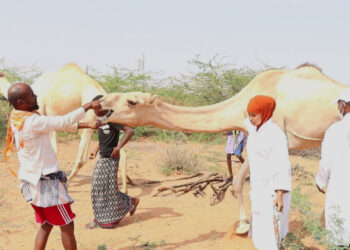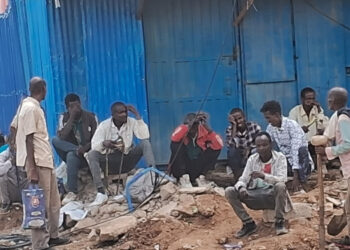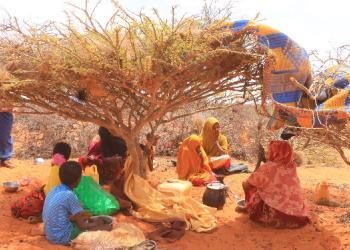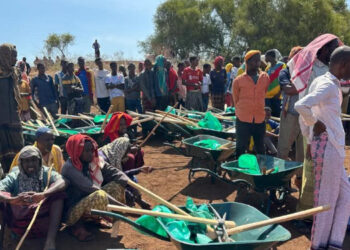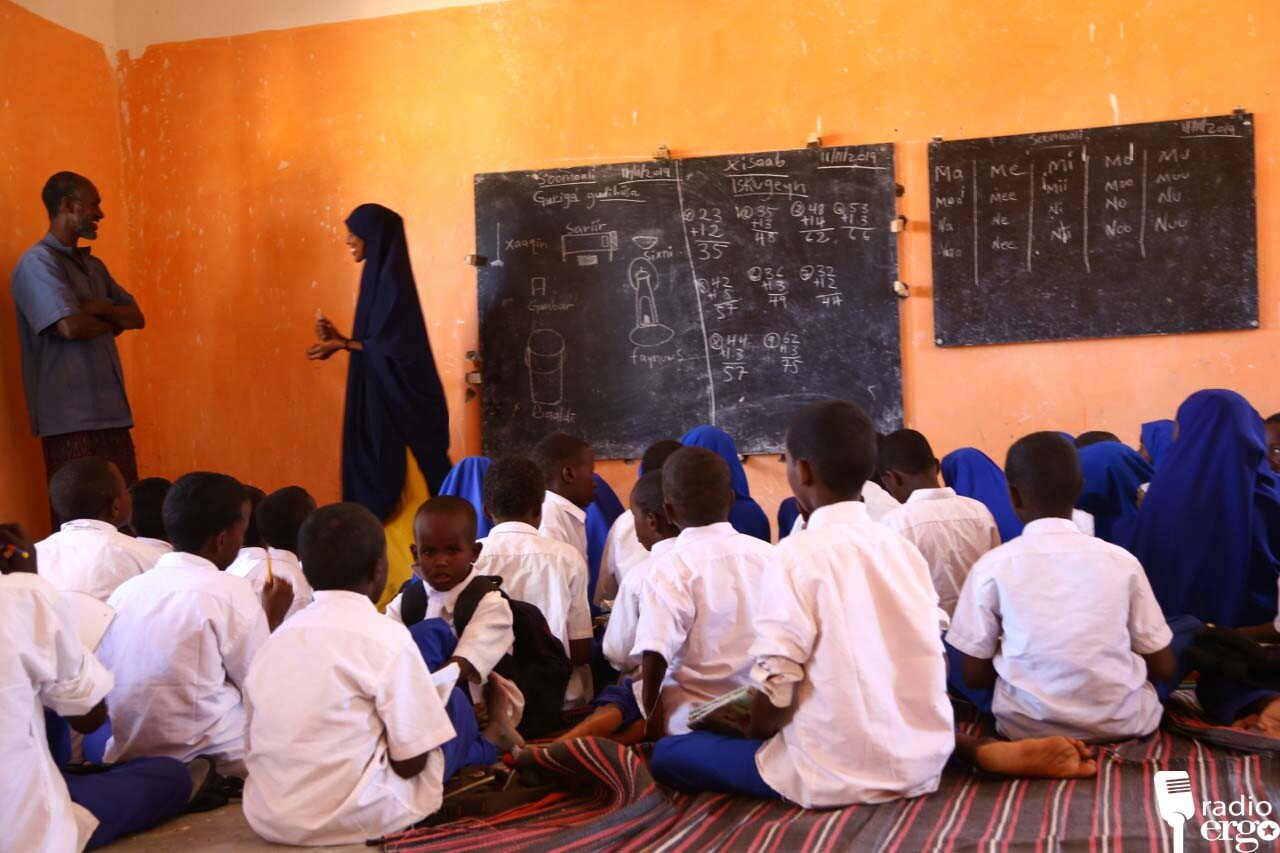(ERGO) – The gift of vegetable seeds has encouraged women farmers in Jowhar, Middle Shabelle, to start cultivating their small farms that they had given up on due to floods, drought, and lack of money.
Maryan Farah Hussein, a mother of seven, lost the $100 she had invested in her two-hectares when river floods washed all her produce away in August 2021. She was among 250 women given lettuce, spinach, pepper, carrot, and cucumber seeds by the Hirshabelle Ministry of health on 15 October.
Maryan, who lives in Jowhar, said financial constraint was the main barrier stopping her from reviving her farm.
“My feelings can’t be summed up! I have got my land and now I have got the seeds as well. When I received the seeds, I quickly starting planting and my expectation from the farm is 99%,” she exclaimed.
Recalling their losses in 2021, she said: “The crops were ripening and we were almost harvesting when floods submerged the farm. We were left empty handed…it all went too fast. I was growing maize, beans, and other vegetables.”
They also lost 76 goats and cows to water and fodder shortage, remaining with 27 animals. The family struggles to meet their basic needs, with her husband earning a meagre income selling firewood.
“We own a donkey, and my husband collects firewood on the donkey cart. We use whatever he earns even if it is $2. We get one meal a day because our income can’t stretch to give us two or three meals.”
Iisho Adan Abdi, another farmer, said that as soon as she got the seeds, she started working on her one-hectare farm in Barey and hopes for a good harvest after two months.
“If all the crops start growing, we will become independent and we won’t worry about hunger. Our hopes are high. We pray that our crops grow well,” she said.
This single mother of eight gets help from her children on the farm. They lost their house and crops in the floods last year and were living in a hut in their compound depending on handouts from their relatives.
Iisho said she was almost giving up on being able to earn a living again when they got the seeds.
“My niece in Mogadishu sends us shillings 200,000 or 150,000 ($5-7). There is also my other relative who sends us $50 at the end of the month. That’s what we get.”
The deputy minister of farms in Hirshabelle, Mohamed Bashir Kasim, said each woman farmer received $150 worth of investment to revive their farm, including pesticide and fertiliser.
“We targeted the women because they used to cultivate these crops that take relatively less time to grow. They are also from poor backgrounds, and some of them single-handedly take care of their children,” said Mohamed.
The women were from villages in Jowhar including, Kalundi, Buray, and Baray. The project was funded by the European Union and implemented by the CEFA (European Committee for Agricultural Training) and the Hirshabelle Ministry of Agriculture.


